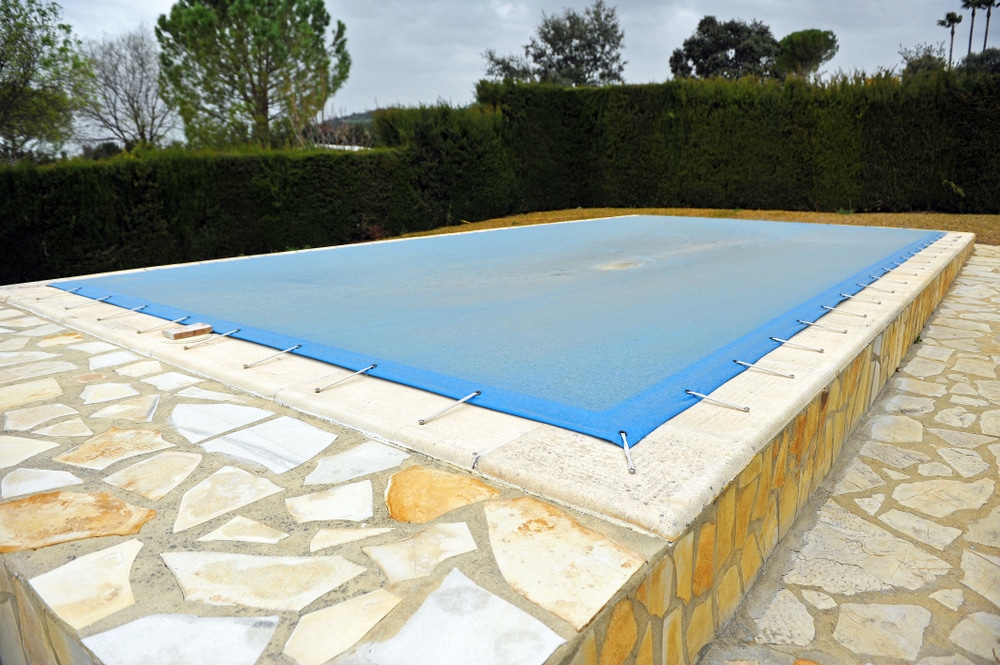If you have a gunite pool, you know that it is an investment that will last for many years. But, like anything else, it can get dirty and stained over time. The good news is that there are ways to remove stains on a gunite pool. With a bit of elbow grease and the right products, you can make your pool look new again.
Let’s look at the most common gunite pool stains and how to get rid of them.
Organic materials

One of the most common gunite pool stains is from leaves and other organic matter. When debris falls into the pool, it can sink to the bottom and stain the surface. The best way to remove these stains is to use a pool brush to scrub the area.
It’s also a good idea to keep your pool area free from leaves and other debris by regularly sweeping or clearing it away. You can use a leaf blower or vacuum to keep the area surrounding your pool clear.
It would help if you also winterized your pool every year. This includes taking care of any ongoing maintenance, cleaning your pool’s filters, and covering the pool to prevent organic materials from falling into it.
You may also like to add artificial grass around your pool area to reduce debris.
Algae
Algae is a problem in gunite pools, and you’ll need to ensure you get the chemicals right in your pool to prevent staining.
If you have stains from algae, you will need to treat the pool with an algaecide. This will kill the algae and remove any stains that have been left on the gunite. Always follow the directions on the algaecide carefully so you do not damage the gunite surface.
Metal
Another type of gunite pool stain is from metal. This can be caused by metals in the water or from pool furniture that is left in the sun. Rust stains can be removed with a chemical or natural cleaner. It’s a wise idea to test the cleaner on a small area first to ensure it does not damage the gunite.
Calcium deposits
Calcium deposits can also cause gunite pool stains due to high levels of calcium in the water. These are usually white or light-colored stains that occur around the waterline.
You will need to use a strong acid cleaner to remove calcium deposits. Follow the directions carefully and test the cleaner on a small area first.
How to remove stains on a gunite pool?
Here are the steps to take to remove stains from the surface of the gunite:
- Identify the cause of the stain and invest in the correct cleaning products. You may like to consult a professional pool cleaning company.
- Drain your pool so that you have easy access to the stains
- Scrub the stains using a cloth, sponge, pool brush, or scorer. Always wear gloves when handling cleaning products, especially if they are acidic.
- Test any products on a small area of gunite to ensure it doesn’t damage the surface.
- Always follow the instructions on the label.
- Scrub using a bit of elbow grease until the stain is removed.
How to maintain a gunite pool
To avoid stains from forming, ongoing maintenance of your gunite pool is necessary:
- Clean away any dirt or debris every week
- Test the waters chemicals weekly
- Add algaecide every week
- Clean the skimmer and pump basket every week
- Winterize your pool annually
- Check for leaks every few months
Do I need to have my gunite pool resurfaced?
Gunite pools are generally considered easy to maintain, but over the years, they will suffer from wear and tear, including staining. If you cannot remove stains from the surface of the gunite, it may be time to consider resurfacing. Most gunite pools require resurfacing every seven to ten years.
Signs that your pool needs to be resurfaced include:
- Stubborn, hard-to-remove stains
- Rough, deteriorated surface texture
- Leaks
Conclusion
These are some of the most common types of gunite pool stains. They can be scrubbed off with some elbow grease and cleaning products. In most cases, you’ll be able to get your pool looking like new again.
If you have any questions about removing gunite pool stains, you can also ask a professional. They will be able to give you specific advice for your situation.

